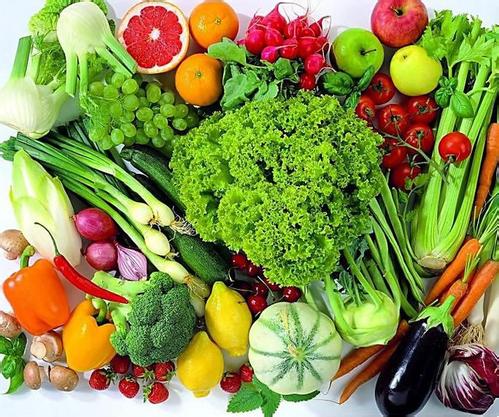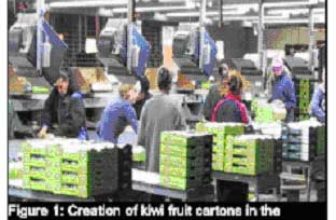
RFID vegetable supply chain technology creates a green and healthy life
[ad_1]
RFID technology has a great contribution to traceability and anti-counterfeiting, and the unique code of RFID electronic tags makes security and anti-counterfeiting a major feature. RFID vegetable supply chain technology creates a green life and makes vegetable safety more secure. RFID traceability and anti-counterfeiting technology enables people to build a bridge of mutual trust with food safety. RFID vegetable supply chain technology creates a green and healthy life.
The vegetable supply chain, like most agricultural product supply chains, also includes several links such as production, processing, warehousing, transportation, and sales. Through the use of RFID technology, the information of each link in the entire supply chain can be easily read into the public database, and each link can also easily increase the data of the corresponding link. Consumers and related departments can also inquire and trace through communication networks and terminals.
The production link mainly refers to a relatively large-scale and standardized vegetable planting base, which is generally large-scale planting and intensive operation, which has the conditions for adopting RFID technology. A label can be set for each plot or variety, and information can be entered during the entire process from planting to packaging of the plot or variety of vegetables, such as vegetable variety, growth time, spraying of pesticides, and chemical fertilizers used , Harvest time, etc., in accordance with the agricultural product coding standards, set a number for each type of vegetable as the unique identification of its identity. In this way, when this variety of vegetables completes the first link of the supply chain, the electronic tag has already stored all its basic information. Acquiring companies can also quickly understand product information, and provide basic data for query systems, drug residue testing systems, e-commerce and other systems for agricultural product processing companies, and provide source data for product traceability.

Since the electronic label can easily add information, the information contained in the electronic label can be read first in the process of processing. Additives used in the process, packaging weight, etc. After the data of the processing enterprise is enriched, the origin information and processing link information have been stored in the electronic tag. When the end consumer inquires about the product information through the query terminal in the retail or wholesale market, the relevant information can be exhausted. It also becomes easy and feasible to trace back after an accident.
Vegetables, as a seasonal product, have high requirements on the warehouse environment. For vegetables that need to be stored in the warehouse, they are read through the electronic label data before they are put in the warehouse. The packaging specifications and packaging weight are automatically read into the computer and processed by the computer. Form inventory information according to the characteristics of the warehouse, and output instructions for storage locations, shelves, and cargo locations. When counting, the terminal reads the electronic label on the vegetable package and records the counted quantity in real time. After the on-site inventory is completed, the inventory staff confirms the number of inventory and uploads it to the back-end database. The inventory data can be automatically changed without too much manual involvement during delivery. The use of RFID technology greatly accelerates the speed of warehouse entry and exit and warehouse inventory, and reduces the error rate.
The application of RFID technology in the transportation of fresh vegetables is mainly reflected in the monitoring, tracking and port inspection of goods in transit. The combination of RFID technology and GPS can provide logistics companies with real-time monitoring and tracking services. At the same time, owners can also easily know where their goods have reached through the computer network. When passing through the port for inspection, the inspection unit does not need to Unpacking the vegetable package, you can know the specific content of the packaged product only through the handheld reader, which greatly improves the speed of port inspection and relieves the squeezing force of the port.
The application of RFID technology in the retail link is embodied in the theft prevention of the unit packaged vegetables in retail stores or supermarkets, the monitoring of vegetable expiration dates, and temporary sales. RFID anti-theft technology is to put electronic tags into the product packaging, and the computer system can monitor the tags of various products in the store in real time through the on-site readers and other supporting facilities. In this way, retailers can open shelves with confidence. RFID electronic tags can monitor the validity period of certain time-sensitive commodities. For example, when tracking a certain food, once the validity period has expired, the label will send an alarm.
The application of RFID technology in the supply chain of fresh vegetables is more and more widespread. The unique code of RFID electronic tags provides a strong guarantee for safety and anti-counterfeiting. It not only exchanges high-quality data in the supply chain, but also guarantees a strong basis for food tracking from the source . Build a bridge of trust between people and food safety, and create a safe shopping environment.
[ad_2]




